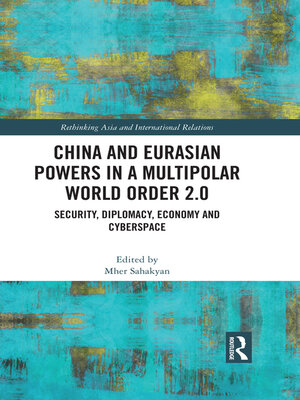China and Eurasian Powers in a Multipolar World Order 2.0
ebook ∣ Security, Diplomacy, Economy and Cyberspace · Rethinking Asia and International Relations
By Mher Sahakyan

Sign up to save your library
With an OverDrive account, you can save your favorite libraries for at-a-glance information about availability. Find out more about OverDrive accounts.
Find this title in Libby, the library reading app by OverDrive.



Search for a digital library with this title
Title found at these libraries:
| Library Name | Distance |
|---|---|
| Loading... |
This book argues that the world order is no longer unipolar, and the war in Ukraine proves this fact. As this study describes and theorizes, it has been transformed into a Multipolar World Order 2.0 stage. This title critically examines Chinese, US, Russian, EU, Indian, and a number of other powers' cooperation and competition over security, diplomatic, economic and cyberspace issues.
Accomplished scholars from various regions of the Eurasian continent consider the impact of the Russo–Ukrainian war, the Sino–Russian strategic partnership, China's relations with the United States and the European Union, the influence of the Belt and Road Initiative, the expansion of the Shanghai Cooperation Organization and Eurasian Economic Union, China's policies in the Middle East, Central Asia, Indo-Asia Pacific, the South Caucasus, Central and Eastern Europe, as well as focus on details of growing contradictions and collaboration in the Eurasian continent over markets, technologies, digital leadership, vaccine distribution, and financial institutions in the Era of Multipolar World Order 2.0.
Showing that the US-centred unipolar world order is replaced by Multipolar World Order 2.0 where conflicting powers fight to keep or extend their spheres of influence, this volume is of great interest to decision makers, diplomats, scholars and students of international relations, politics, global governance, Eurasian studies, Chinese studies, cybersecurity, and economics, and for those studying human security, international organizations, and geopolitics.







